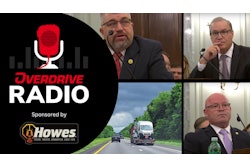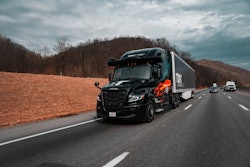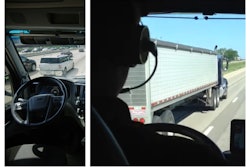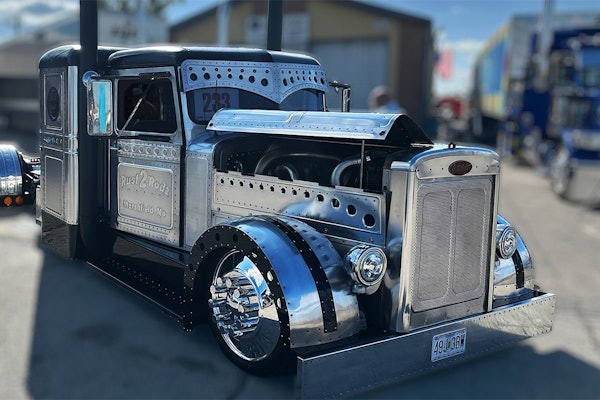How can the Department of Transportation fulfill President Donald Trump's executive order for a nationwide review of non-domiciled CDLs if the country's most populous state doesn't even track how many non-domiciled CDLs it issues?
A recent report in Overdrive uncovered more than 60,000 active non-domiciled CDLs, which states can issue to non-citizens in the country with temporary work authorization, but that number does not include CDLs issued by California, Colorado, Nevada, Georgia, Kentucky, Kansas, North Carolina, New York, New Jersey, Connecticut or Virginia, for a couple different reasons. (To download the full review of all 50 states' non-domiciled CDL issuance, follow this link or fill out the form at the end of this report.)
As noted in the report, representatives from state licensing agencies in California, Colorado and Nevada said they simply don't keep records of how many CDLs they issue to non-citizens. Yet per Trump's executive order, the DOT and its Federal Motor Carrier Safety Administration have launched their nationwide "audit" of non-domiciled CDLs. How can those states possibly cooperate or comply?
FMCSA previously told Overdrive its goal with the review was to "identify and eliminate patterns of abuse" with respect to non-domiciled CDL issuance. Overdrive asked FMCSA to clarify: If California, for example, doesn't even know how many CDLs it's issued to foreign workers, what is there for FMCSA to review?

FMCSA did not respond to that question. So as we did with the recent non-domiciled CDL report when FMCSA couldn't quantify numbers of CDLs issued, we asked each state, instead.
What California, Colorado and Nevada are saying about the federal non-domiciled CDL audit
The California Department of Motor Vehicles said it complies with FMCSA regulations and "is cooperating with the U.S. Department of Transportation on the audit."
"The DMV uses Title 49 of the Code of Federal Regulations (CFR) § 383.71 (a)(5) for standards on valid legal presence and domicile documents," the DMV said. That section of the code states: “The person must provide to the State proof of citizenship or lawful permanent residency" as laid out in the table below "or obtain a Non-domiciled" commercial learners permit.
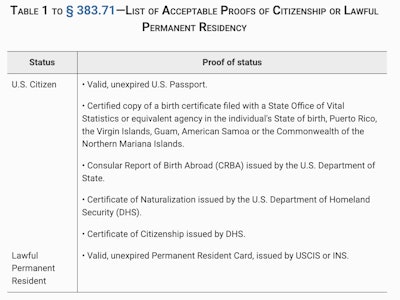
The regulatory code further requires that non-domiciled commercial driver's credential holders must provide the "legal presence and domicile documents required to apply and maintain a CLP/CDL," California's DMV said.
California, as with 39 other states, accepts employer authorization documents and I-94 forms to prove legal presence in the U.S.
During the Biden administration, the Customs and Border Protection's CBP One app helped newcomers to the U.S. in applying for the I-94 form, which acts as proof of legal presence. The Trump administration has since changed the app, canceled immigration appointments set by the app, and focused the app on facilitating self-deportations for unauthorized immigrants. The administration has stripped some applicants of their legal status and told them to leave the country "immediately," according to Homeland Security communications reported by CBS.
California, like many states, also accepts proof of residency documents like a cell phone bill or any letter from a non-profit, business or religious institution and will even issue CDLs to drivers that don't give a first name.
[Related: California cargo thief's 'No Name Given' CDL, explained]
Otherwise, California's DMV said it calls non-domiciled CDLs or CLPs "limited-term" credentials that have an expiration date coinciding with legal presence expiration.
Colorado's DMV gave a similar response.
"The Colorado DMV understands the importance of upholding federal regulations regarding CDLs, including those pertaining to the non-domiciled CDL population," Colorado's DMV told Overdrive. "We acknowledge DOT Secretary Duffy's recent announcement regarding an audit and will cooperate as needed with the FMCSA. We remain committed to ensuring the safety and integrity of our CDL program."
In Nevada, another general acknowledgement.
"Nevada DMV is subject to, and participates in, audits by FMCSA as a requirement to issue CDLs in our state," Nevada's DMV said. "This audit would be handled like any other audit required by FMCSA."
Most of the other states that did not provide data on their CDL issuance practices -- Kentucky, Kansas, New York, New Jersey, Connecticut and Virginia -- noted they'd need Overdrive to pay a contractor to dig up the numbers.
Maybe when FMCSA comes looking for the same data they'll find the money.
Download Overdrive's full 50-state accounting of non-domiciled CDL issuance for more information via the brief form below.

